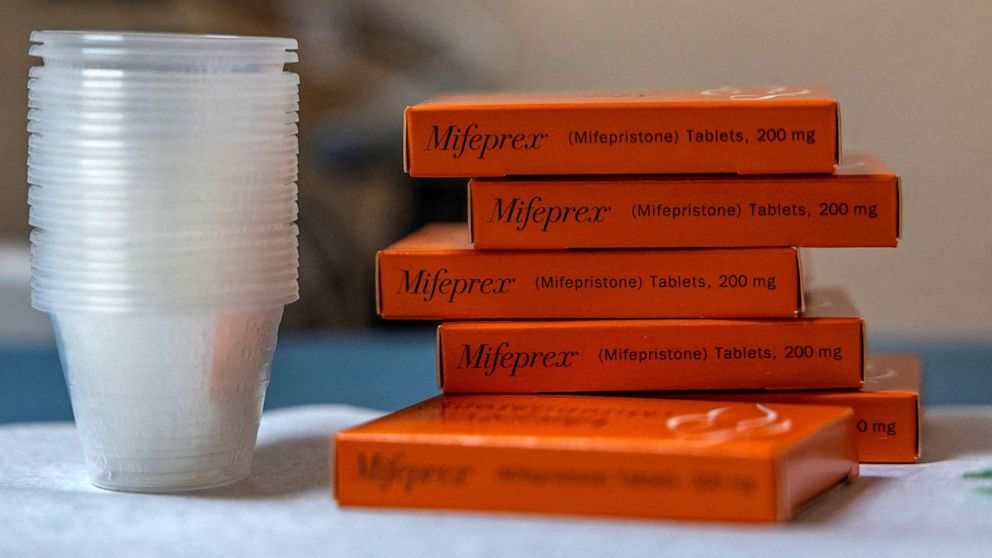


A federal U.S. appeals court late Wednesday partially blocked an unprecedented ruling by a single federal judge in Texas last week that reverses the Food and Drug Administration's approval of the widely-used abortion drug mifepristone.
The United States Court of Appeals for the Fifth Circuit granted the U.S. Department of Justice's emergency request to put on hold U.S. District Judge Matthew Kacsmaryk's decision to suspend the FDA's initial authorization of mifepristone back in 2000, citing the the statute of limitations. However, the three-judge panel determined that other parts of Kacsmaryk's ruling, which suspends changes the FDA later made to mifepristone's approved use and halts distribution of the drug by mail, could still go into effect at the end of the day Friday.
MORE: Unprecedented Texas abortion pill ruling sparks debate about 'judge shopping'The Justice Department could ask the U.S. Supreme Court to intervene and completely block Kacsmaryk's order.
The challenge to mifepristone's FDA approval stems from a lawsuit filed in Amarillo, Texas, in November 2022 by Alliance Defending Freedom, an Arizona-based conservative Christian legal advocacy group working to outlaw abortion. The case was assigned to Kacsmaryk, who was appointed to the federal bench in 2019 under former President Donald Trump and is currently the sole judge seated in the Amarillo division of the U.S. District Court for the Northern District of Texas.
MORE: DOJ files appeal after judge reverses FDA approval of abortion drugOn April 7, Kacsmaryk ruled to suspend the FDA's authorization of mifepristone, saying the drug was unsafe and its approval process was rushed. The Justice Department subsequently appealed the decision to a higher court.
The lawsuit against mifepristone came just months after the Supreme Court overturned the landmark Roe v. Wade case that legalized abortion nationwide nearly 50 years ago.
MORE: What to know about Texas ruling that could see abortion drug taken off the marketMifepristone has been on the market for 23 years. In 2016, the FDA lifted some of mifepristone's original safety restrictions by increasing the maximum gestational age at which the drug can be used from 49 to 70 days, reducing the number of in-person office visits that patients are required to make from three to one, allowing non-doctors to prescribe and administer the drug and eliminating the requirement for prescribers to report non-fatal adverse events.
In 2021, the FDA announced it had permanently lifted its restriction that mifepristone must be dispensed in-person. Last month, the agency went a step further by allowing retail pharmacies to provide the drug too, either by mail or in person, so long as they meet certain requirements.
MORE: If an abortion drug is banned, could misoprostol be used as a safe alternative?Medication abortion now accounts for more than half of all abortions in the U.S., using a combination of two drugs, mifepristone and misoprostol, according to the Guttmacher Institute, a New York-based research group focusing on sexual and reproductive health.
The FDA has not approved misoprostol to be used for abortions on its own.
ABC News' Anne Flaherty, Marilyn Heck, Alexandra Hutzler, Mary Kekatos, Bonnie McLean, Ashley Riegle and Mireya Villarreal contributed to this report.